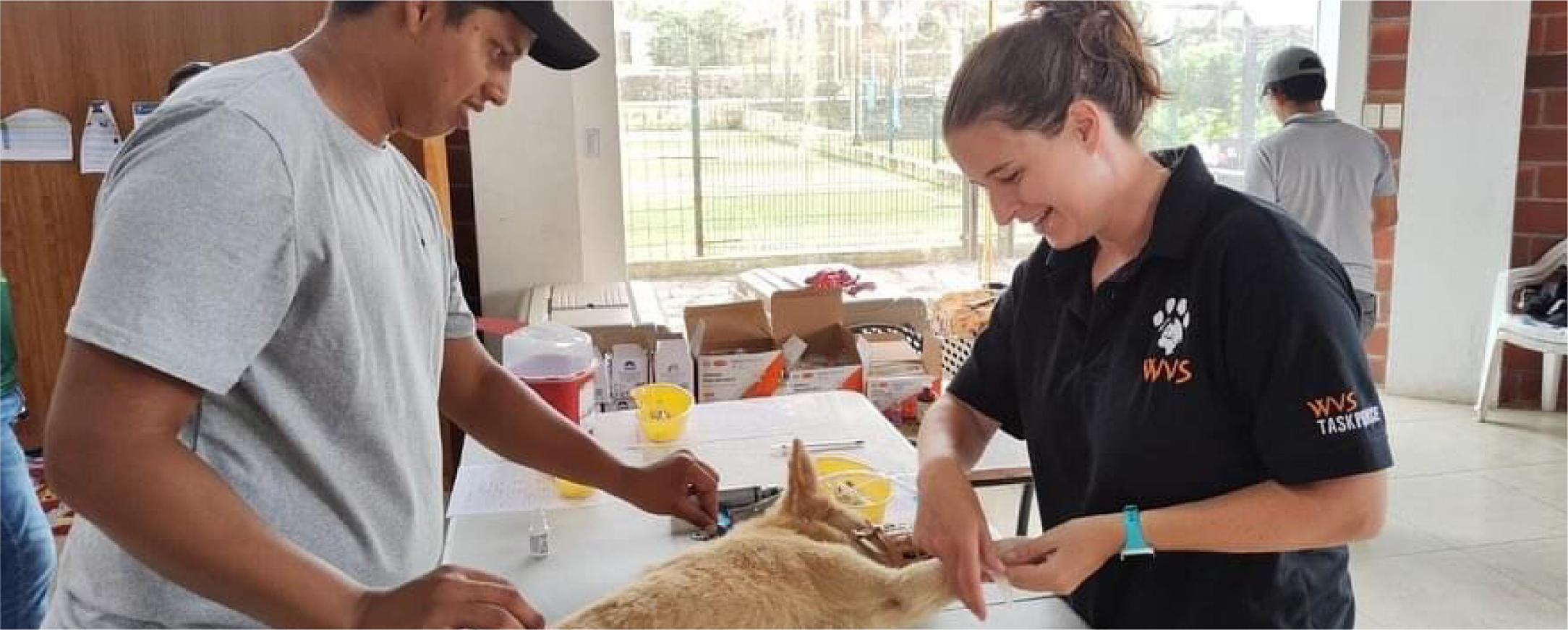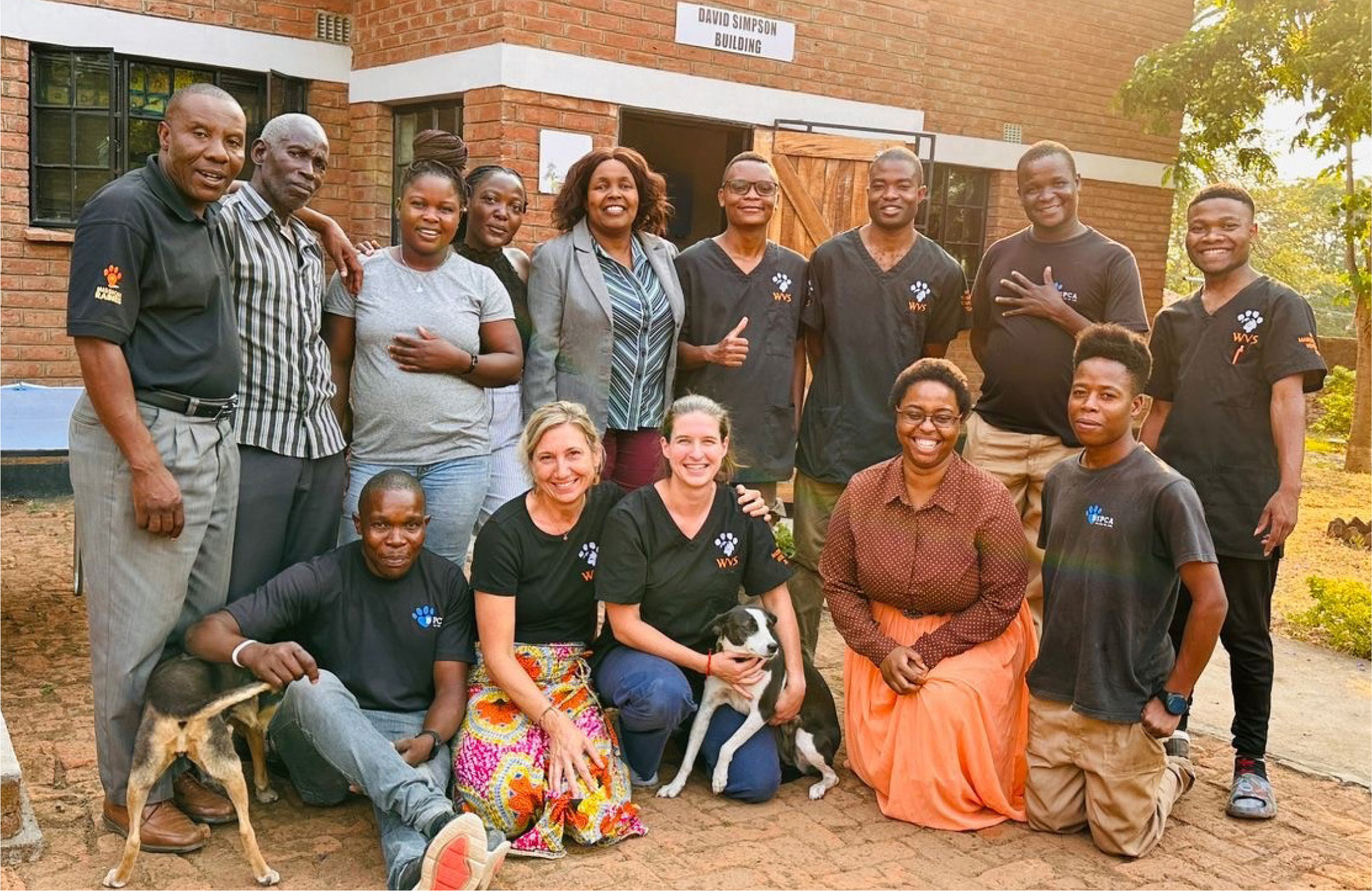When I qualified as a registered veterinary nurse (RVN) in 2012, I had no idea that travelling abroad to volunteer as a veterinary nurse was even an option. At the time, I believed I needed to secure a full-time position in practice and that this would define my career path. However, times have changed. Opportunities for permanent nursing roles and volunteering placements are now widely available around the globe. The question I often hear from colleagues is: how do you even begin?
In 2019, after hearing about the incredible experiences my colleagues had volunteering at a small charity clinic on the Caribbean island of Carriacou, I decided it was time to take the leap. One day at work, I gathered my courage and clicked the button to apply to volunteer with the Worldwide Veterinary Service (WVS). I was thrilled to receive the response confirming my application had been approved.
That experience truly changed me. It boosted my confidence in the adaptability of my nursing skills and allowed me to see the direct, positive impact of our work on both the animals and the local community. The clinic, entirely run by volunteers, was busy every day, and my role focused solely on nursing. I met incredible people, including a couple of vets with whom I remain close friends to this day.
The trip also pushed me out of my comfort zone. It was the first time I had travelled abroad without family waiting on the other side, but I was well looked after and felt fully supported throughout the process by both WVS and the clinic owners. They even organised activities on our days off, ensuring we explored and enjoyed the island, achieving that often-elusive ‘work-life balance.’
Following that first trip, I committed to annual veterinary volunteering trips once COVID-19 travel restrictions were lifted.
So, what's stopping you from taking the leap?
WVS aim to get as many volunteers out to help as possible, so they keep their costs low to make it accessible. Often volunteering projects just require you to cover your flight and food costs and sometimes a small additional donation is needed to support the ongoing work.
Your options of where to go are also pretty much unlimited. As a RVN we do not have as many restrictions on us for volunteering in some countries as you do with being a vet. The charity you choose to help whether you go to them directly or a partner charity, such as WVS, will be able to help with what you need to prepare. They will be able to support you with whether there are limits on what you can and can't do (within your normal nursing guidelines), whether you need to register with the local government and what visa might be required for your stay.


Before travelling, additional vaccines, such as rabies, are likely to be required. It is advisable to book an appointment with your local travel clinic for an assessment of the vaccinations needed for the country you plan to visit. Being prepared is key—know what vaccines you have already received and when. If you use the NHS app, you can check your immunisation history there. It is important to schedule this appointment well in advance, as some vaccines require multiple doses over a set period to ensure full protection. Note that common travel vaccines, including rabies and yellow fever, are not covered by the NHS, so you will need to account for these costs.
The presence of veterinary volunteering on social media has grown significantly. Groups like Veterinary Volunteering are excellent resources for registered veterinary nurses (RVNs) to connect with charities seeking support, gather information, and ask questions of fellow volunteers. Signing up for these groups or reviewing options on the WVS website can be a great starting point for exploring potential placements.
There are a variety of veterinary volunteering opportunities available. You might work in a clinic needing nursing support or participate in sterilisation or vaccination campaigns. Flexibility is often built into volunteering roles, with options for short-term commitments on non-campaignprojects throughout the year. Personally, I would allocate half my annual leave for holidays and the other half for volunteering. Some corporate practices also support voluntary work by offering matched annual leave, up to a set amount per year, and unpaid leave can some-times be arranged as well.
For those considering longer-term placements or permanent contracts abroad—typically six months to two years—taking a sabbatical or career break from a UK-based position may be an option. This should be discussed with your employer, as policies vary between practices and organisations.
Since early last year, WVS has offered a one-year Taskforce Nursing Programme. This programme allows a small number of UK RVNs to join WVS for a one-year contract, rotating between placements at their International Training Centres (ITCs). I was fortunate to be selected last year and completed the programme in July 2024. Participants spend three months at each ITC, located in Malawi, India, the Galápagos/Ecuador and Thailand. The programme focuses on improving nursing protocols and standards across all ITCs, ensuring consistency, and providing on-site support for nursing teams. Recruitment for this role occurs approximately every six months and is a fantastic example of the opportunities available for RVNs post-qualification.
Volunteering abroad reminds you of why you became a nurse. It fosters compassion, resilience, adaptability and innovative thinking, while offering the chance to see the world from new perspectives. You can immerse yourself in different cultures, collaborate with like-minded professionals, and make a positive global impact on animal welfare. Your nursing skills are invaluable—so, what is stopping you?


